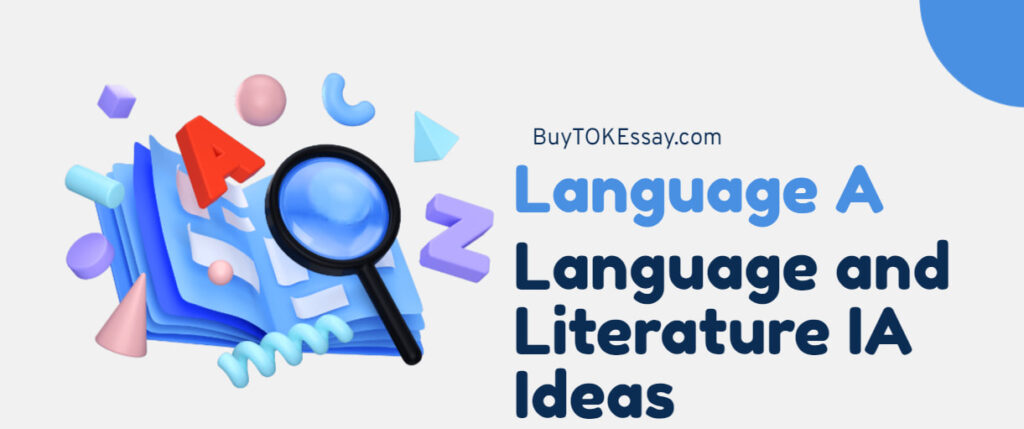While selecting Music IA topics, IB students sometimes search for original concepts that provide creativity and academic rigor. As a seasoned IB writer, I can tell you that choosing a topic that speaks to you is the secret to writing a perfect IB DP Music Internal Assessment.
What Is the IB DP Music Internal Assessment?
More than simply another assignment, the IB DP Music Internal Assessment offers you a singular chance to research the complex field of music and examine it within its many cultural and historical settings. You must find how music engages with history, culture, and society. It’s an opportunity to share your interpretations that showcase your character, critical thinking abilities, and musical knowledge.
This subject’s internal assessment helps you make the connection between your understanding of music theory and practical performing or composing abilities. You must think critically and grasp music’s function in many situations, whether examining the emergence of electronic music or evaluating a classical symphony. What the IB criteria value most is as follows:
- Cultural insight. Demonstrate how music fits into its cultural context.
- Historical awareness. Consider the background of the work or genre you selected.
- Analytical depth. Examine the “why” underlying musical decisions and practices by going beyond cursory examination.
- Personal interpretation. Share your thoughts and interpretation of the work or genre.
The IB DP Music Internal Assessment typically has a word limit of 1,500. This restriction does not include footnotes, citations, bibliographies, and appendices, but the analysis and comments are. It’s important to stay within this limit to keep your mind clear and focused since going over it can result in fines or lower grades.
Music Internal Assessment Topic Ideas
Each category offers a different perspective, allowing you to choose Music IA topics that interest you and meet the IB Music curriculum requirements.
Cultural and Historical Analysis of Music
This category allows you to investigate music through its historical and cultural settings, examining how various genres represent historical occurrences, social beliefs, or local identities.
- The Role of Music in Civil Rights Movements in the United States
- How Traditional African Drumming Reflects Cultural Values and Community Structures
- The Influence of the Industrial Revolution on 19th-Century Classical Composers
- The Reflection of Japanese Culture in Traditional Noh Music
- Examining the Political Significance of Soviet Propaganda Songs
- How American Jazz Influenced European Classical Composers in the 20th Century
- The Evolution of National Identity in Argentine Tango Music
- How Irish Folk Music Represents Historical Resistance and National Identity
- The Role of Music in the Spread of Religious Ideals During the Renaissance
- Analyzing the Cultural Significance of Reggae in Jamaican Society
- The Influence of World War II on British Popular Music
- How Modern Hip-Hop Reflects Urban Culture and Social Issues

Technical and Compositional Analysis of Music
For those more interested in the technical aspects, this category enables you to concentrate on the structural, harmonic, or rhythmic components that characterize different genres and works.
- Analyzing the Harmonic Structure of Beethoven’s Late Quartets
- The Use of Polyrhythms in West African Drumming and Its Influence on Jazz
- Examining Minimalist Techniques in Steve Reich’s “Music for 18 Musicians”
- The Role of Dissonance in Creating Tension in 20th-Century Classical Music
- How Composers Use Modulation to Evoke Emotion in Romantic Symphonies
- The Evolution of Counterpoint from Renaissance to Baroque Music
- The Influence of Baroque Ornamentation Techniques in Vivaldi’s Concertos
- Analyzing the Rhythmic Complexity in Igor Stravinsky’s The Rite of Spring
- The Structure and Impact of Rondo Form in Classical Period Compositions
- How Jazz Musicians Utilize Modes in Improvisation
- Examining the Relationship Between Melody and Harmony in Chopin’s Nocturnes
Genre and Style Development
This category focuses on the development of specific genres and styles and offers insights into how various styles came about, evolved over time, and impacted other musical forms.
- The Evolution of Punk Rock and Its Influence on Alternative Music
- How the Baroque Period Shaped Classical Music Structures
- The Development of EDM (Electronic Dance Music) in the Late 20th Century
- The Impact of African-American Spirituals on the Development of Gospel Music
- The Evolution of Bollywood Music in Indian Cinema
- How Grunge Shaped the Sound and Culture of the 1990s
- The Rise of Trap Music and Its Cultural Influence in the 21st Century
- Tracing the Origins and Growth of Reggaeton in Latin America
- The Development of the Symphony from Haydn to Mahler
- How the Impressionist Movement Influenced Classical Music Compositions
- The Role of Hip-Hop in Modern Music and Its Global Influence
Music and Technology
This category investigates the relationship between technology and music and how digital platforms, recording, and production developments have changed how music is made, shared, and enjoyed.
- The Influence of Synthesizers on the Development of Electronic Music
- How Auto-Tune Changed Modern Pop Vocals and Public Perception
- The Role of DAWs (Digital Audio Workstations) in Revolutionizing Home Music Production
- Analyzing the Impact of Social Media on Independent Musicians’ Success
- The Rise of Sampling in Hip-Hop and Legal/Ethical Implications
- How Streaming Services Are Shaping Modern Music Trends and Audience Preferences
- The Use of Artificial Intelligence in Music Composition and Its Future Implications
- Comparing Analog and Digital Sound in Music Production
- The Role of MIDI Technology in Live Performances and Studio Recording
- Examining the Impact of Virtual Instruments on Modern Composition
- How Music Production Software Has Democratized Access to Music Creation
- The Role of Music Videos and Visual Media in Shaping a Song’s Popularity
Psychology and Perception of Music
This area examines music’s psychological and emotional components and the research behind its impact on human behavior, emotions, and cognitive processes.
- How Different Musical Genres Affect Mood and Emotion
- The Role of Music Therapy in Treating Anxiety and Depression
- Analyzing How Music Can Influence Memory Retention and Recall
- The Effects of Upbeat vs. Slow Music on Exercise Performance
- How Music Triggers Nostalgia and Its Impact on Personal Identity
- Examining the “Mozart Effect” and Its Validity in Cognitive Development
- The Role of Rhythm and Repetition in Creating Musical Enjoyment
- How Lyrics and Melodies in Pop Songs Influence Emotional Responses
- The Psychological Impact of Dissonance and Consonance in Music
- Analyzing How Film Scores Affect Viewer Emotions and Story Perception
- The Role of Music in Social Bonding and Group Dynamics
- How Background Music in Retail Environments Influences Customer Behavior
Looking for inspiration? Check out these Theatre IA topics for ideas to make your IB project impactful and original.
Social and Political Influence of Music
This category examines music as a medium for social and political expression, emphasizing its use to oppose injustice, encourage change, and raise cultural awareness.
- The Role of Folk Music in the American Civil Rights Movement
- How Music Was Used as Propaganda in 20th-Century Wars
- The Influence of Protest Songs in Shaping Public Opinion During the Vietnam War
- Hip-Hop as a Platform for Social and Political Issues in Urban Communities
- Analyzing the Role of Punk Rock in Anti-Establishment Movements
- The Impact of Reggae Music in Spreading Messages of Peace and Unity
- How Music Festivals Promote Social Awareness and Activism
- The Role of Latin American Nueva Canción in Political Activism
- How National Anthems Reflect and Reinforce National Identity
- The Rise of Feminist Themes in Modern Pop Music
- Music as a Form of Protest Against Climate Change
- The Role of Music in Raising Awareness About Racial Injustice
How to Choose the Right Music IA Topic?
One of the most essential steps in producing an interesting and perceptive project is selecting the appropriate Music IA topic. The most fantastic themes for research are those that meet the IB requirements for depth, originality, analytical capacity, and your particular interests.
Start by thinking about the elements of music that most interest you. Do you find the technical aspects, like rhythm or harmonic analysis, appealing? Or maybe you’re curious about the cultural background, such as how music depicts historical events or society? Selecting a topic that aligns with your interests and talents will make writing easier.
The following advice will help you choose your IA topic for IB DP Music subject:
- Determine your musical interests. Consider the genres, eras, or composers that you find appealing.
- Evaluate the depth of available resources. Make sure there is sufficient information to back up a thorough investigation.
- Examine for cultural or historical significance. Subjects with broader applicability might enhance the depth of your research.
- Think about technical complexity. Ensure you are at the level necessary for topics that require a sophisticated understanding of music theory.
Consider which topics give a novel angle once you’ve narrowed your choices. In addition to helping you fulfill IB criteria, a well-chosen topic will fulfill your academic path.

Need Help with Your IB Internal Assessment?
Reach your full ability and improve your IB IA scores with our help. The BuyTOKEssay.com team can help you write an excellent paper from scratch or tweak your current project to match your supervisor’s requirements.
You can buy an Internal Assessment that fits your needs with just one click.
Conclusion
Be audacious and innovative while writing your Internal Assesment: include your thoughts and original ideas to represent your insights. And here’s a time-saving suggestion from experience: start early, allow yourself time to edit, and don’t be afraid to ask for comments. In addition to being a fulfilling academic accomplishment, a well-prepared IA is a turning point in your IB experience, of which you can be proud.
To sum up, your Internal Assessment is an opportunity to sharpen your critical thinking skills and learn more about the world of music. If your IA has a well-chosen topic, thorough research, and a clear structure, it will show your interest and proficiency.
If you need help, BuyTOKEssay.com provides expert support that boosts your confidence in creating an outstanding paper for TOK essays and Internal Assessments.





